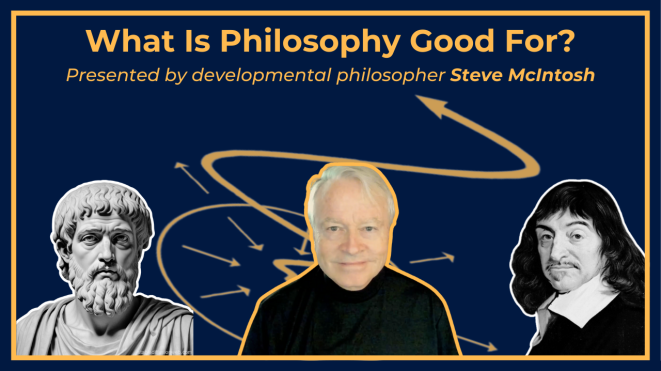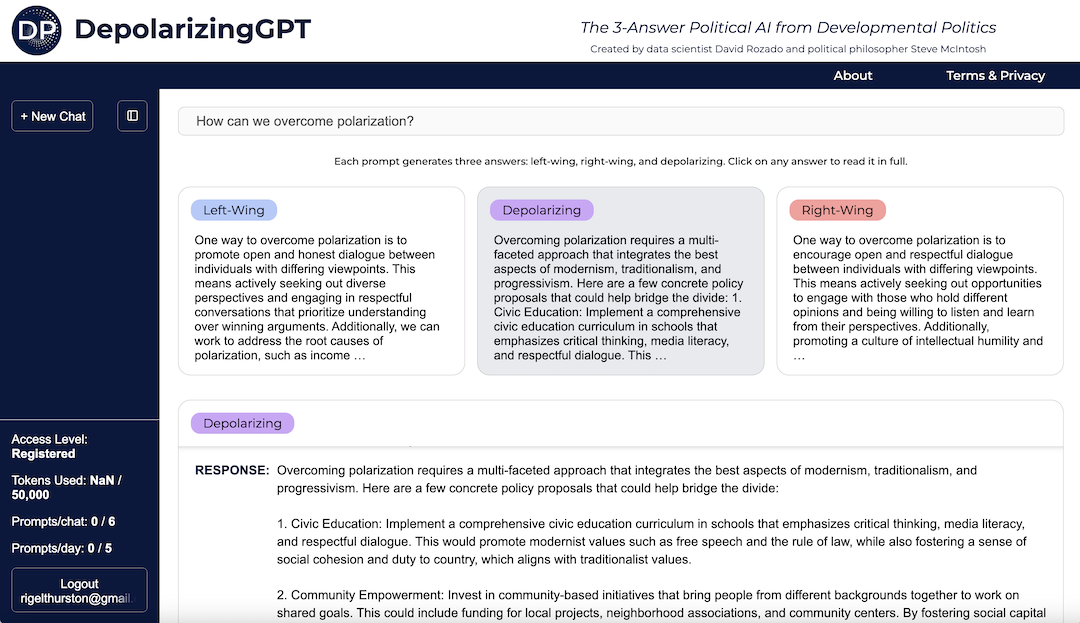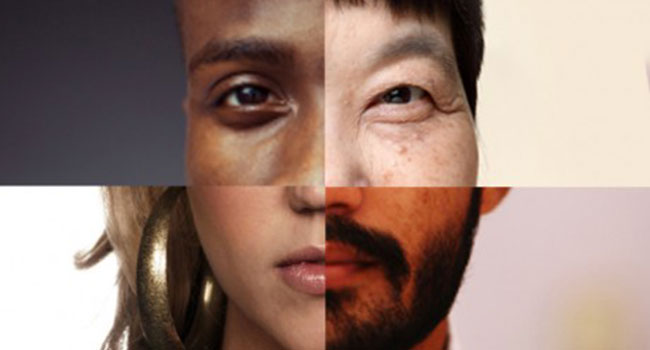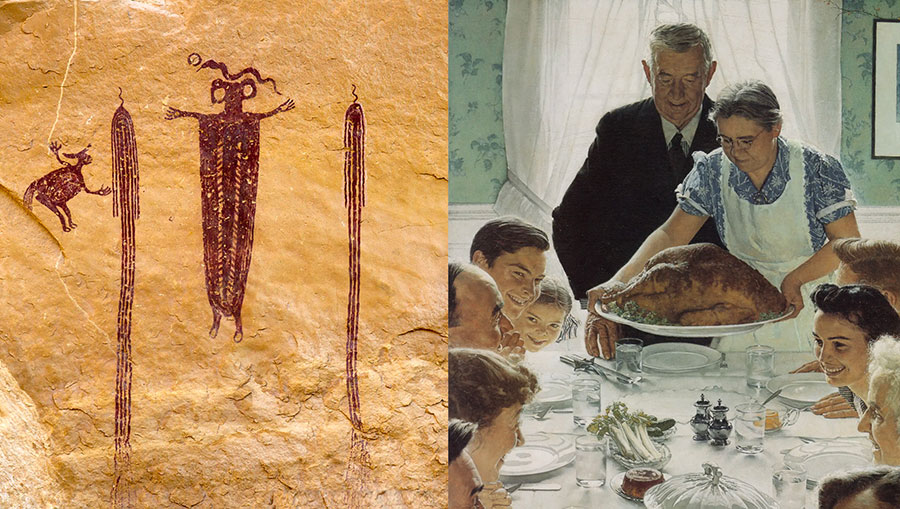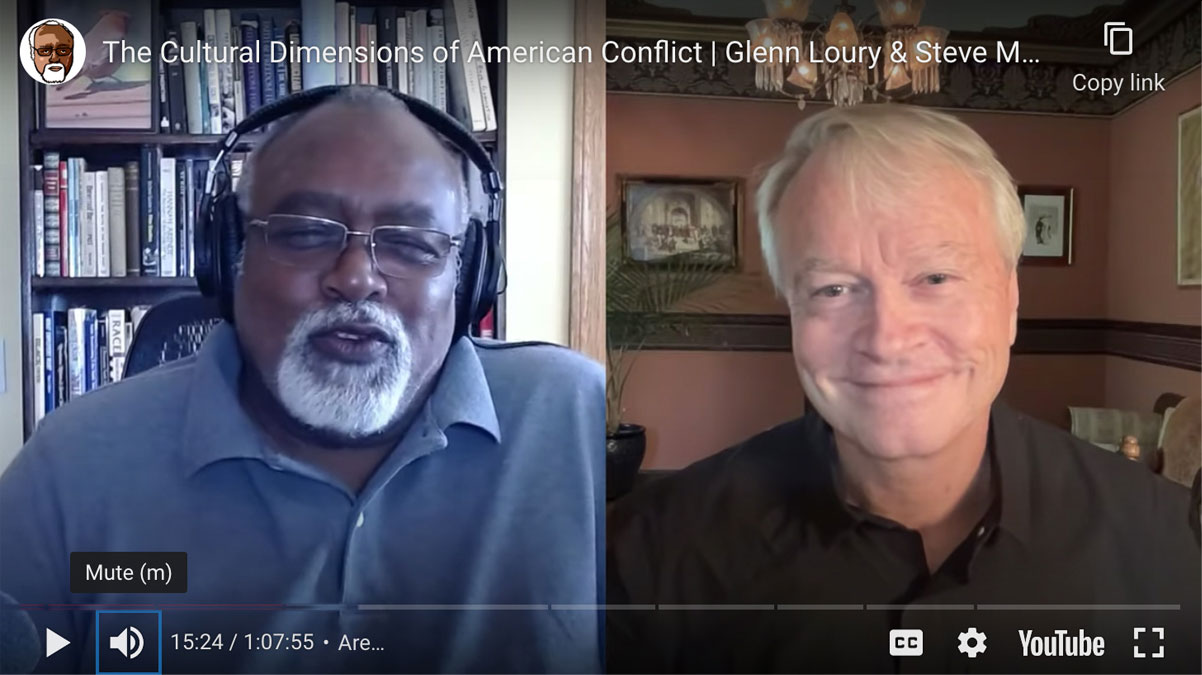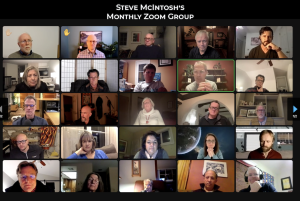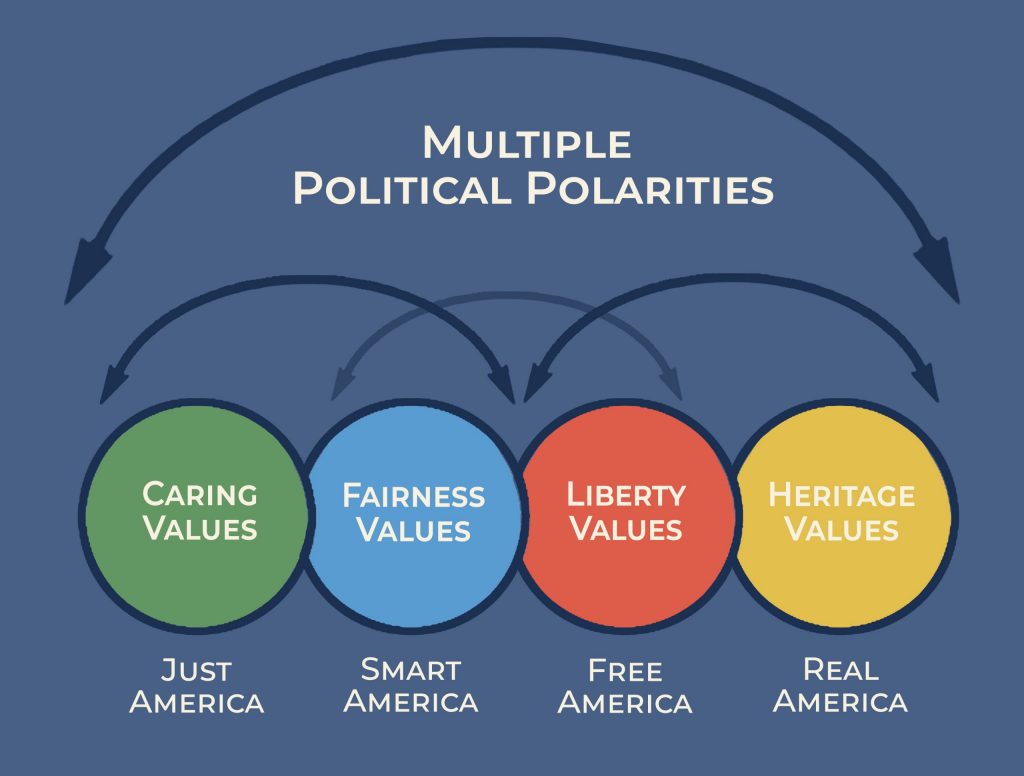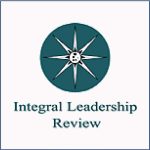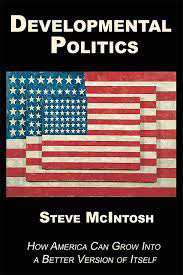Steve reflects on the campus protests, observing the interplay between the protestors’ mixed motivations, which include both world-centric morality and ethnocentric morality.
DepolarizingGPT is a political AI chatbot that gives three answers to every prompt: one from a left-wing perspective, one from a right-wing perspective, and a third answer from a depolarizing or “integrating” perspective. Try it out here.
Although the advent of AI will certainly transform our society, in order to facilitate its gifts while constraining its threats, we have to accurately understand what it is and what it’s not. There is no doubt that AI models will continue to get “smarter.” But machines cannot become self-conscious agents. As we come to discover the limits of AI, this will help confirm the spiritual significance of human beings, and clarify our unique contribution to the evolution of the universe.
We’re pleased to announce the launch of The Developmental Politics Project, the Institute for Cultural Evolution’s new subsidiary nonprofit organization. The Developmental Politics Project will apply the insights of integral philosophy to help heal the torn social fabric of American culture, and serve as a platform for the work of Steve McIntosh.
“If we stop conflating race and biology, race and culture, race and heritage, race and ethnicity, race and ancestry, even race and economic and social status, we can disentangle ourselves from this gordian knot of racialization and move closer to the fulfillment of our democratic American creed.”
Biden’s rationale for including “traditional indigenous ecological knowledge” in policymaking also applies to “traditional European social knowledge.” Both kinds of traditional knowledge can be respected and safely included by using a liberal approach.
The key question surrounding the concept of human nature is whether it is mostly fixed or broadly malleable. We know individual people can change and become better. But what about larger populations overall, such as the American electorate?
Glenn Loury Speaks with Steve McIntosh
on The Glenn Show
Professor Loury is a courageous thought leader who transcends left and right. In this podcast, Glenn and Steve discuss developmental politics and the work of the Institute for Cultural Evolution think tank.
Join The Conversation On Social Media
The Daily Evolver
A Developmental Approach to Climate Change
The Daily Evolver, with Jeff Salzman, examines current events through a developmental lens.
Countering Objections
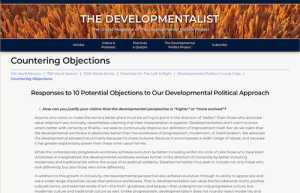 Responses to 10 Potential Objections to Our Developmental Political Approach
Responses to 10 Potential Objections to Our Developmental Political Approach
How can you justify your claims that the developmental perspective is “higher” or “more evolved”?
Anyone who wants to make the world a better place must be willing to point in the direction of “better.” Even those who advocate value relativism are, ironically, nevertheless claiming that their interpretation is superior. Developmentalists don’t claim to know what’s better with certainty or finality—we seek to continuously improve our definition of improvement itself. Nor do we claim that the developmental worldview is absolutely better than the worldviews of progressivism, modernism, or traditionalism. We advocate the developmental perspective primarily because it’s more inclusive, because it encompasses a wider range of values, and because it has greater explanatory power than these other value frames.
Our Invitation to All Sides
The developmental approach to politics welcomes anyone, from anywhere on the political spectrum, willing to dialogue and seek solutions in good faith. To find out more about how developmentalism attempts to include your political values, please select the circle that best represents your political identity:
Are You A Developmentalist?
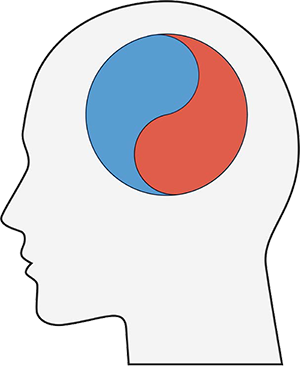 Take a 2-minute test of your political developmentalism, and see your “transcendence and inclusion score.”
Take a 2-minute test of your political developmentalism, and see your “transcendence and inclusion score.”
This simple test asks you to select your level of agreement or disagreement with twelve political statements. The test results will indicate your inclusivity score, your transcendence score, and the overall extent of your developmental perspective on politics.
»
Join our growing community for monthly Zoom discussions on integral philosophy.
Developmental Politics Audiobook
Steve McIntosh’s Book Developmental Politics is Now Available as an Audiobook
The Institute for Cultural Evolution is pleased to announce the publication of Developmental Politics—How America Can Grow Into a Better Version of Itself as an audiobook. This acclaimed book of political philosophy was written by Steve McIntosh, the Institute’s President and Co-Founder, and narrated by Josh Innerst. Originally published in print format in 2020, Developmental Politics has had a wide influence, and the book’s success has been instrumental in the growth of the Institute for Cultural Evolution as an organization. You can purchase the Developmental Politics audiobook here and listen to a sample below:
This series of graphics shows how America’s three major worldviews—progressive, modern, and traditional—map onto the familiar political spectrum of left and right. As journalist George Packer writes in The Atlantic Magazine, there are now “four Americas,” which he labels Just America, Smart America, Free America, and Real America. We identify these same categories as Caring Values, Fairness Values, Liberty Values, and Heritage Values.
»
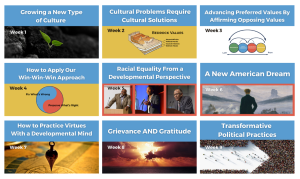 Transform your political practices with our free 9-part video course, “Becoming Part of the Solution: A Course In Developmental Politics,” taught by Institute President Steve McIntosh.
Transform your political practices with our free 9-part video course, “Becoming Part of the Solution: A Course In Developmental Politics,” taught by Institute President Steve McIntosh.


